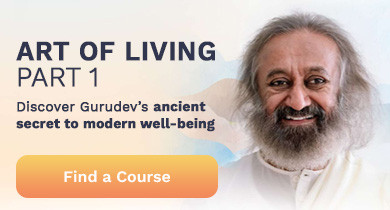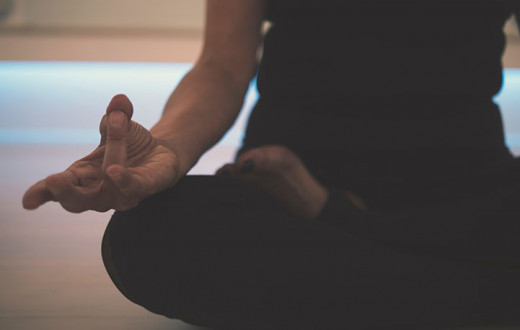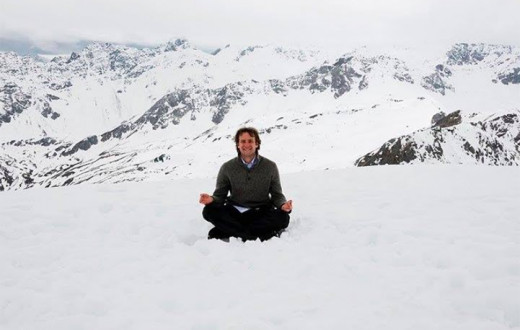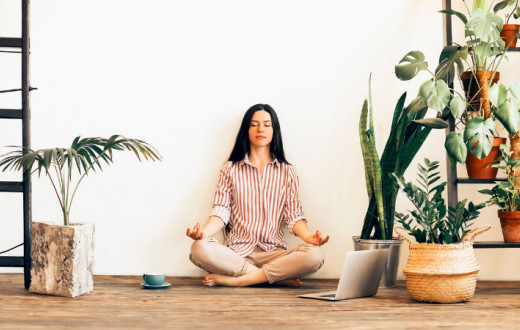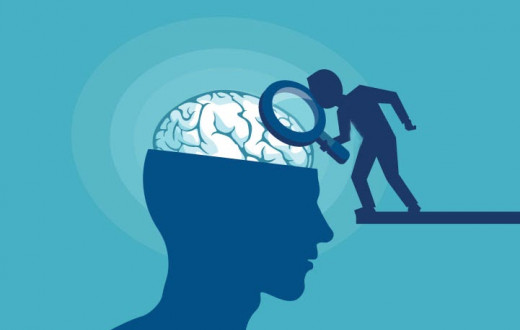By Jade Doherty
Struggling to sleep? Discover how to use meditation to help sleep, and start getting a great night’s sleep.
To sleep or not to sleep, that is the question.
How many of us have laid in bed at night, looking at the ceiling, perhaps replaying a situation in our minds or imagining a new one, and NOT FALLING ASLEEP?
I'm sure we've all been there. I personally like the "Sleep Math". Where you check the time and work out how many hours of sleep you'd get if you fell asleep right now. 5 hours...4 hours...3 hours...
Not being able to fall asleep is frustrating. We all know how on edge and unfocused we feel after a night of no sleep. And a chronic lack of sleep? That actually starts leading to health issues.
According to The American Sleep Association:
50-70 million adults in The US have a sleep disorder
25 million adults in The US have obstructive sleep apnea
37% of adults aged 20-39 and 40% aged 40-59 report short sleep duration.
That's a lot of people struggling with sleep problems!
Why do we struggle to fall asleep?
There can be many reasons why a good night's sleep eludes us, but some of the main offenders are:
Caffeine - Too much caffeine can really make it hard to nod off to sleep. It's a stimulant, so, doing what it does best, it stimulates us. While we generally think of caffeine as coffee- which it is! - other things have caffeine in them too. Soda drinks often have caffeine, some deserts contain caffeine too.
So, to help yourself get better sleep and aid relaxation, try to not drink caffeine too late in the day.
Screen time - Most of us spend a lot of time on screens. Too much time, if we're being honest. We work on the mid-sized screen (the computer), constantly check the small screen (the cell phone), and chill out by watching the big screen (the TV). That's a lot of time spent staring at a screen and does not set us up for a good night's sleep.
Not to mention how so many people are "on", all the time. Checking emails right up until we go to bed (or maybe even in bed!), working late, and constantly being in that analytical, working things out state.
Try limiting screen time. As you wind down for bed, try reading a book, or having a bath, or even some gentle yoga to help your mind and body wind down.
Stress - Oh, stress! You again?!
Stress makes sleep (and pretty much everything else!) so much harder. A little bit of stress is ok, but we run into trouble when our baseline state becomes stress.
Stress keeps us on high alert, ready to act, anticipating a threat. This might look like a constant feeling that there is something wrong, that you've done something wrong, and feeling that there's always something else you need to do (or stressing that you've forgotten to do something!).
To be a bit more precise, this feeling of stress engages the sympathetic nervous system, AKA the fight-or-flight response. Fight-or-flight does not lead to restful sleep! To encourage relaxation and improve sleep quality, we need to engage the parasympathetic nervous system. Also known as the rest-and-digest branch of the nervous system.
This isn't exactly like the other two points where you can cut down on something, it requires a little more effort. But, with meditation techniques and mindful breathing, you can calm down that fight-or-flight response, and find relaxation and get some good, good sleep.
What are the consequences of a sleep disorder or insomnia?
Before we get into how you can use meditation to help sleep, let's look at what happens when we don't sleep well.
The consequences you've probably experienced include feeling unfocused, short-tempered, and struggling to concentrate. You might have noticed yourself snapping at friends, loved ones, or colleagues when you haven't slept enough. You find it hard to concentrate, and generally can't focus very well.
But, the consequences of sleep deprivation actually go even further than that. When it comes to chronic sleep deprivation, you are also at risk for:
A weakened immune system
High blood pressure
Risk of heart disease
Memory problems
Diabetes
And accidents from a loss of concentration and balance
So, as you can see, not getting enough sleep feels bad, and has long-term consequences.
Meditation to help sleep
So, how can meditation help to improve your sleep cycle, and make bedtime much easier? Here are 3 ways meditation can help. Two of the following options are great for short-term relief, while the last option will help you to improve your sleep in the long run.
Guided meditation - Listening to a guided meditation at bedtime can be a great way to encourage relaxation and help you sleep. There are a variety of types of guided meditation. Some will be a body scan meditation, others will rely more on visualization and imagery, while others might even feel like a bedtime story.
Yoga Nidra - Also known as "yogic sleep", Yoga Nidra is a great tool to have in your bedtime toolbox. Yoga Nidra takes your mind and body into a state of deep relaxation, and it's said that 30 minutes of Yoga Nidra is equivalent to 2 hours of sleep.
I should mention that Yoga Nidra is not designed for "nighttime sleep". Rather it's a body scan meditation technique that takes your mind and body into a state of incredible relaxation. It's a great pick me up when you need it.
To find out more about Yoga Nidra, click here.
SKY Breath Meditation - The previous 2 options are great for short-term relief, but if you're looking to really overcome sleepless nights, SKY Breath Meditation is where it's at.
SKY has been shown to improve sleep, as well as having many other benefits.
As the name suggests, SKY is a breath-based meditation, created by global spiritual leader Gurudev Sri Sri Ravi Shankar. In a study, it was found that SKY practitioners spent 13% more time in deep sleep than the control group.
There are a ton of benefits to SKY, ranging from physical and mental benefits to interpersonal and psychological.
Firstly, SKY enhances deep sleep and increases energy levels. If stress is an issue for you, you’ll be pleased to know that SKY reduces stress, while increasing brain function, immunity, and mental focus.
If you’ve been struggling with high blood pressure and cholesterol levels, you guessed it, SKY can help to reduce both of these, and also helps to reduce addictive behaviors, plus increasing respiratory function.
On a mental level, SKY boosts creativity and increases life satisfaction.
These benefits not only change the way you feel, but they also change the way you interact with the world. Many SKY practitioners (and studies) report greater ease in personal and work relationships, improved patience, and increased confidence and self-esteem.
Finally, for anyone struggling with anxiety and depression, SKY can help to relieve depression and anxiety (both clinical and non-clinical) and can even reduce PTSD.
All of these benefits lead to a happier, and more fulfilling life!
Getting started
So, if you're ready to get started and start enjoying great sleep, every night, I'm thrilled to invite you to join us for a free workshop called Beyond Breath. You will get a taste of what SKY is and how it works and will be guided through a breathing technique by an expert teacher. You will also be able to ask any questions you have and find out if SKY is right for you.
Click the image below to save your spot.
Jade Doherty is a freelance copywriter, meditator, and traveler, who is currently exploring and learning to surf in Goa, India.

